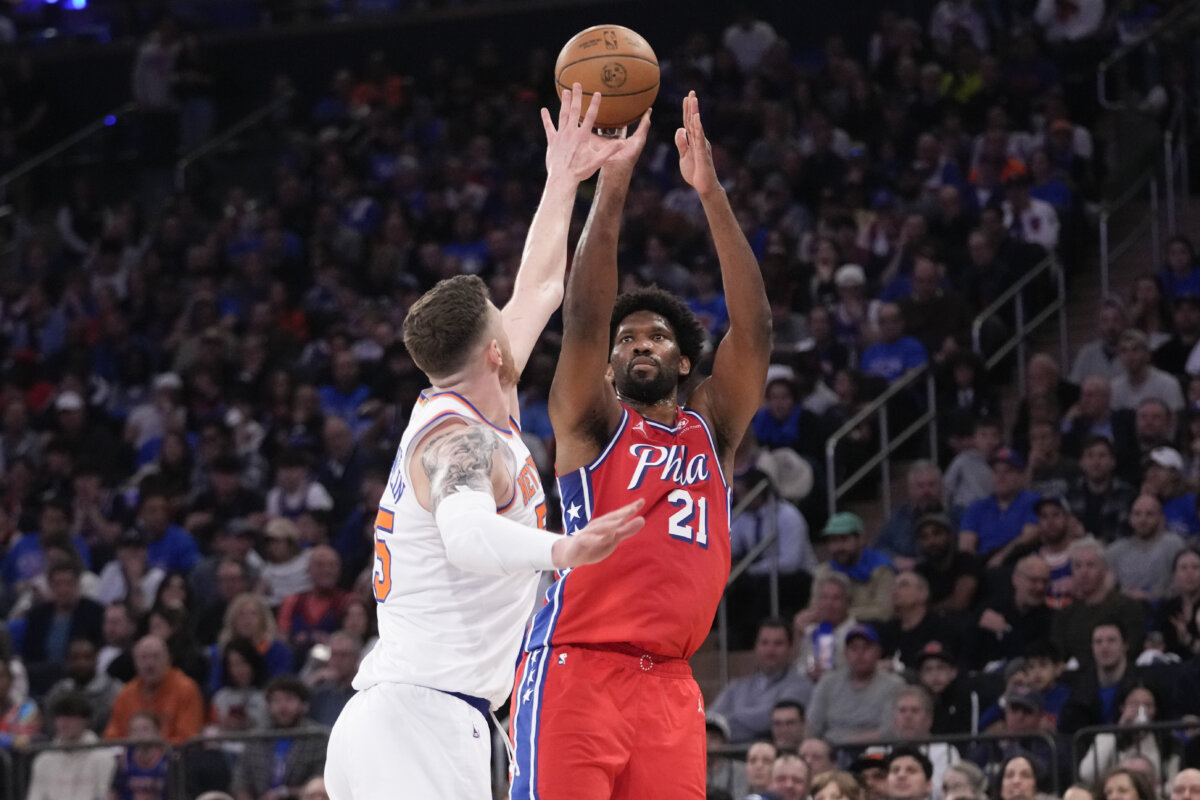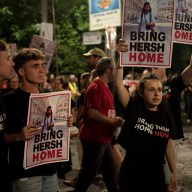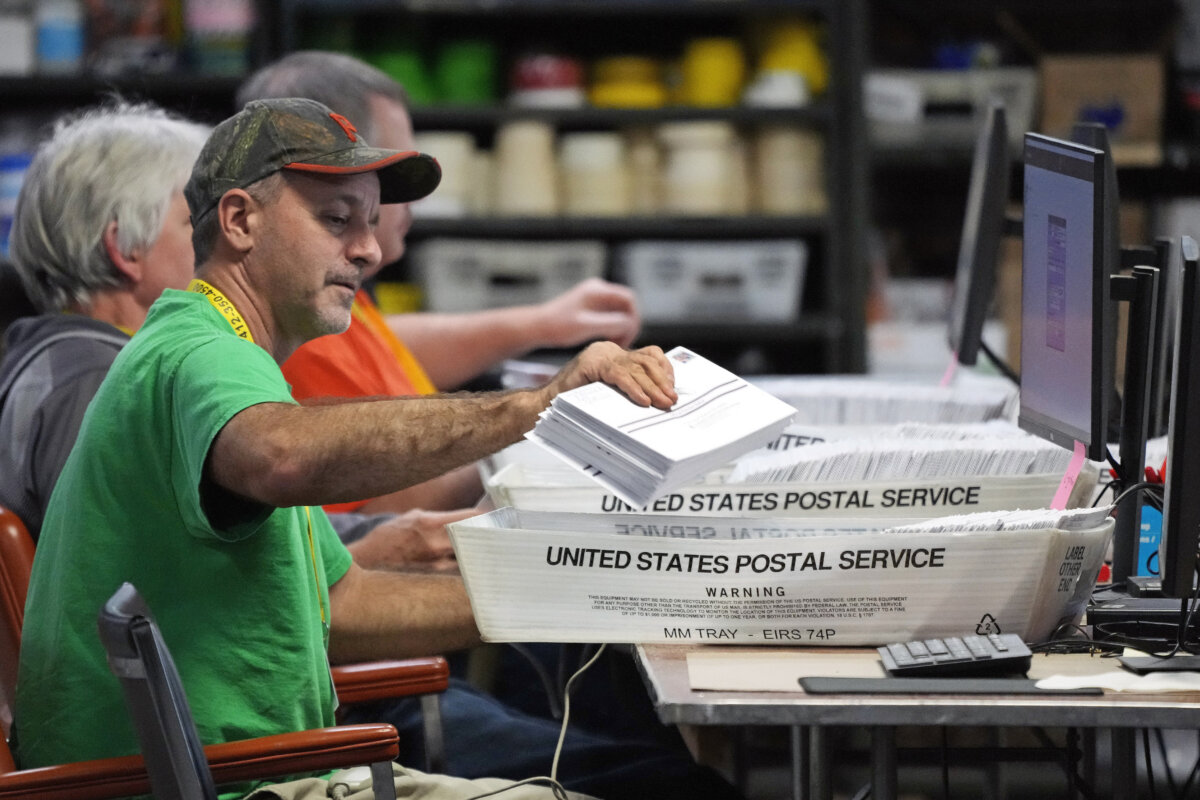“The Wolf Gift,” the newest novel from Anne Rice, the queen of supernatural stories, hits shelves today. We spoke with the author about her influences, characters and her thoughts on the future of book publishing.
You were raised in a very strict, Catholic upbringing. What kind of effect did that have on you and your writing?
I think it influenced everything. I grew up in the ’40s and ’50s in New Orleans, which is a Catholic city. I was in a Catholic parish, going to a Catholic school, in a world where everybody went to a Catholic school, and we had beautiful churches all over New Orleans, and all of that ended up influencing my work tremendously. I had lots of church, of course, before I wrote “Interview with the Vampire,” but “Interview with the Vampire” was a lot of that, grieving for that, grieving for that lost sense of being involved in a meaningful community. It’s kind of natural, I think, for someone who grew up like that to write about European-American characters — like, Louis was a French plantation owner living in Louisiana. It’s kind of normal coming from that to write, I think, an ornate and almost European type of prose.
Did your background influence “The Wolf Gift”?
I think it’s a synthesis of where I’ve just been and what I’ve gone back to. For 12 years, I attempted to be a Christian again — I went back to the church and for 12 years I really lived it, breathed it, wrote two books about Jesus that provided me with one of the greatest experiences in my career. And I’ve left that, I’ve publically left religion, and I’m back again with the classic monsters of horror, but I think the work is really synthesizing. It’s really pulling together a lot of what I’ve learned during those Christian years and it feels to me different from the older vampire novels. First of all, it’s very contemporary: Reuben is young and living in San Francisco right now and I had a confidence to present him in this contemporary world that I kind of lacked years ago, when I would always put my characters in historical settings.
So was it hard for you to write about today’s world?
No, it was completely easy because I feel like a part of it now. In my older horror novels, there is a lot of attention to costume, detail, atmosphere and gothic romance, but in this one I was able to do all that in the present time. I felt I had a quicker access to everything I had experienced than I’ve had in the past.
It must have been fun to change gears like that.
It was a kind of natural feeling and it felt good. I think the worst thing for a writer to do is to keep repeating herself. A lot of readers would be happy if you did, they make that very clear. I mean, I love my readers and they give me a lot of feedback. One of the things they do is say we would like a book about this and we would like a book about that, and it’s very explicit about what they want and you can’t always do it.
Do you think werewolves are the new, post-vampire “It” monster?
I don’t know, I was actually told before I wrote this that they were done. They said that there were so many werewolves running around in “True Blood” and “Twilight” that it was old hat now. A couple of people said that you’re going into a very crowded field. Of course, that didn’t stop me. I thought, “I’m going to do it my way.”
That seems to have worked for you over your career.
I think that the best thing that anybody can do is write the books you want to read. Write the person you’re obsessed with and write the hero you want to be and go to bed with. With me right now, I thought, “Wow, what about the werewolf? What if he was completely conscious during the transformation and he became a heroic being?” I wanted to investigate him my way.
I heard you got the idea for this book from the producer of the TV show “White Collar.”
That is true. I emailed Jeff Eastin because I’m a big fan of the show. I just think it’s one of the most fresh and clever shows on TV. We have an email friendship going and he said something about it in an email. He said that he’d watched a documentary on werewolves and something about if I ever wanted to do a werewolf novel, he would buy buckets of it, and it was just a casual thing and I got to thinking, “Wow.” Most of the time when people mention werewolves, I would always say “No, I’m not going to do that. My sister’s done that and I don’t want to crowd her.” Then I got to thinking, “Well, Alice has been gone since 2007, I miss her terribly, but maybe it’s OK now, five years later, to write about werewolves. Maybe it’s alright; I wouldn’t encroach on anything she’s done. Her novels are still selling really well on Amazon, she has a lot of fans still. Maybe it would be OK.” And from there I started to think, “What would I do with it?”
And I read that you based the main character of this book on the star of “White Collar,” Matt Bomer. Have you ever met him?
Nope.
Does he know he’s inspired a character in your book?
I don’t know. I should send him a copy! Jeff knows, he’s read “The Wolf Gift.” I just acknowledge Matt as the physical model. You know, Matt’s voice, Matt’s eyes.
He is a beautiful man.
Well, yeah, he is. You know, I didn’t even plan it. I just kept seeing and hearing Reuben as Matt Bomer. If they were to make a movie and Matt Bomer were to step into that role, I would be absolutely thrilled. But I always do this with books. Many times I have a model. When I wrote “The Witching Hour” years ago, the model was Tom Berenger. I mean, anything can inspire a character. With Matt, it was his beauty, his voice, his quiet manner, all of that from “White Collar.” Really, I’m just a big fan.
As you said earlier, you did some writing about your faith, and now you’re coming back to the monster genre. Did being away from it change how you write about it now?
I felt it did. I felt that the challenges I faced in writing the two “Christ the Lord” novels taught me a lot about the craft of writing. In those novels, I was really writing about Jesus as we know about him from the gospel and I had never tried that before. My fictions had always been speculative and wide open and I hadn’t tried to make a character fit with any history, and it took quite a lot out of me to do that. It’s like writing a sonnet as opposed to writing a paragraph of prose and trying to conform to the rules. I learned a lot. I think it strengthened me as a writer. It gave me some confidence about putting a character into a historical setting like that and being able to breathe life into that character while being absolutely true to those parameters.
So is this going to be the first of many wolf books from you?
I’m sure it will be, but I’m writing another supernatural novel. Right now, I’m not even going to say too much about it because I keep changing my mind. But I’m back to supernatural fiction and I feel really that I’m back to talking about good and evil and questions of meaning and belief. I’m happy to be back.
Out of all the TV shows boasting supernatural creates, which is your favorite?
I will tell you the truth: The show that I really like is “Once Upon A Time.” I think that show uses imagination and the fairytale motif in the best way possible. The reason I love it is it’s really rooted in character. It uses the whole background to reveal the human self and that’s what really interests me. I’m not really interested in the typical formula of “Let’s hunt the supernatural monster,” or “We’re the only ones who know the world is invested with supernatural monsters so let’s kill them.” That to me is just cop show stuff. I don’t care about that. I want to know about the heart and soul of that monster. I want to see what the metaphor is. So I would say “Once Upon A Time” is great. I think “True Blood” is very clever and very funny. I think Charlaine Harris is an amazingly clever writer and Alan Ball is brilliant too. To me, I enjoy more than anything the comic aspect.
You should guest-star on it!
Oh, I would love to. All they have to do is call me, and I will go to Sam Merlotte’s and sit there with my notebook and interview a vampire.
Have you warmed up to new reading technologies like the Kindle and Nook, or do you see yourself more as a traditionalist with books?
I’m totally for the technology. I don’t myself use it, though I’m talking to you in a room surrounded by books with at least three Kindles in it. I’m all for it because I keep hearing from people that Kindle has worked miracles for. I have a brother-in-law who loves books but hasn’t been able to read for the last 20 years; now all that’s changed because he can adjust the light and the font of his B&N Nook, and he’s back into reading books for the first time. And I hear this over and over again from people who have disabilities, from people who are traveling. Technology is bringing more people into the book world and is making it easier for people to read more, and all of that is good for us. I don’t see why we should fight that, we should embrace that and find a way to preserve the conventional book and the conventional book store. I’m convinced we can do it but nothing’s going to be gained by fighting the Kindle. It’s the wave of the future, it’s doing wonderful things. It’s helping kids in school because they don’t have ten huge textbooks in their backpack, they can get them all in their Kindle. It’s helping old people, it’s helping the disabled, it’s helping travelers — it’s a wonderful thing. The bookstores are struggling right now, but they’re going to re-build and re-invent themselves in new ways because people still love physical books. They’re never going to stop loving physical books. I periodically ask on my Facebook page what people are doing with Kindle, and when I first started asking about a year ago, almost all the posters said that they hated it and they loved real books. Now, when I post a question about it, almost everybody says they’re using a Kindle or an E-book.

















